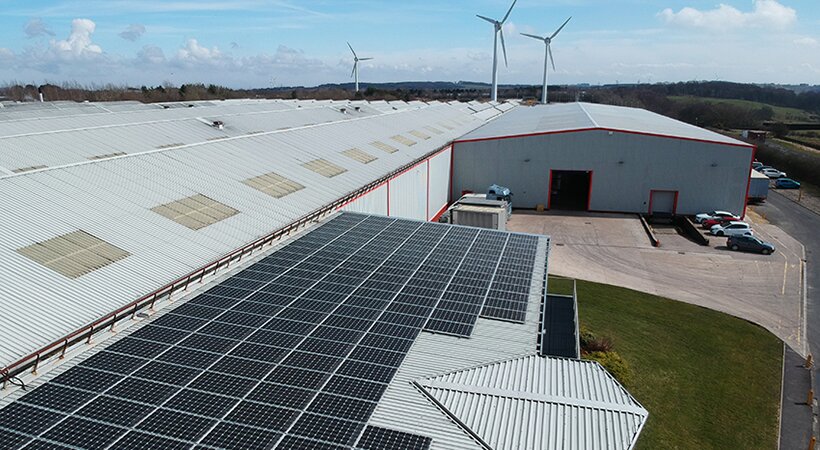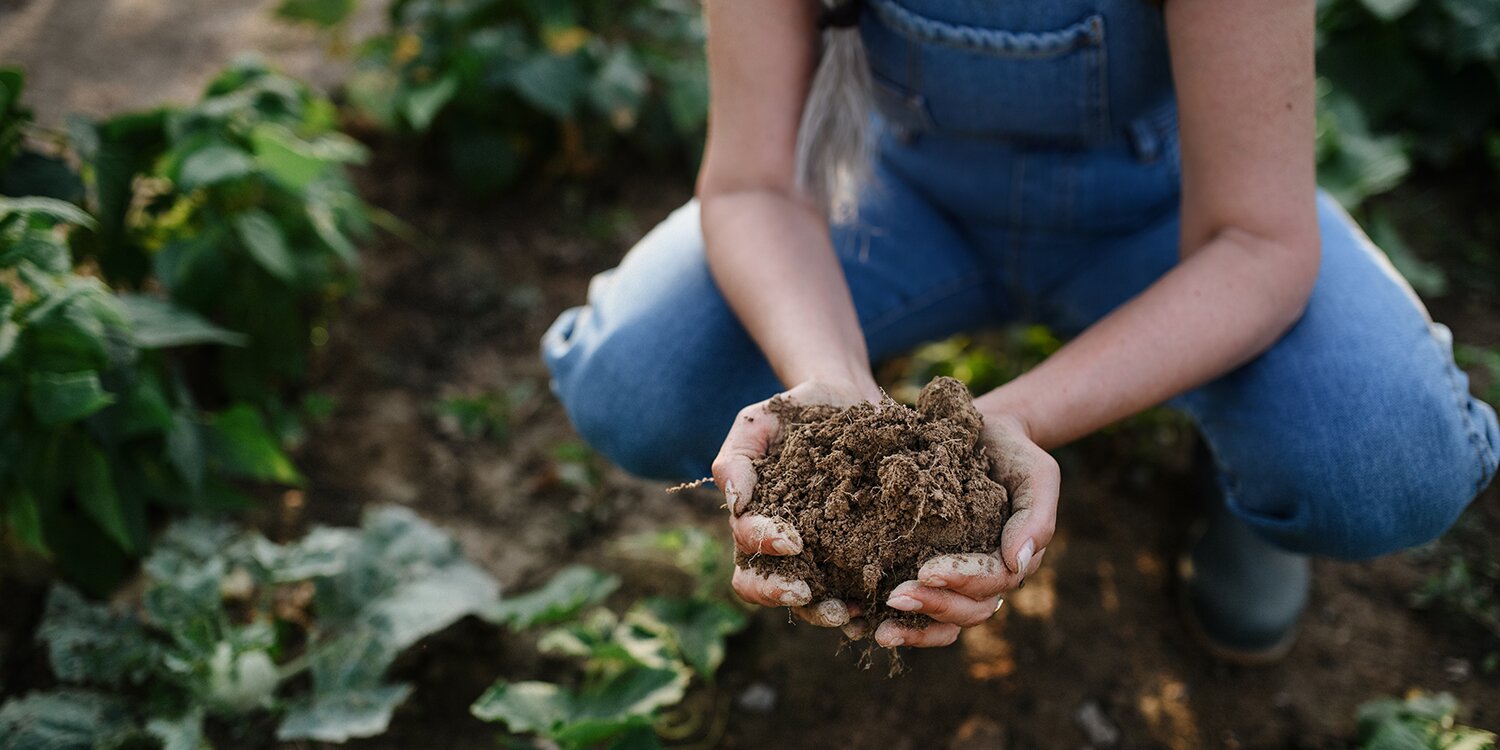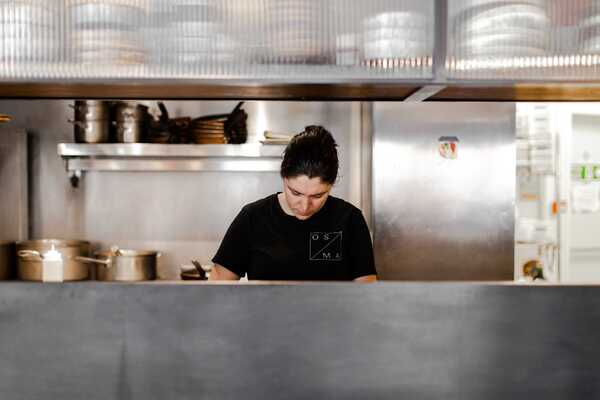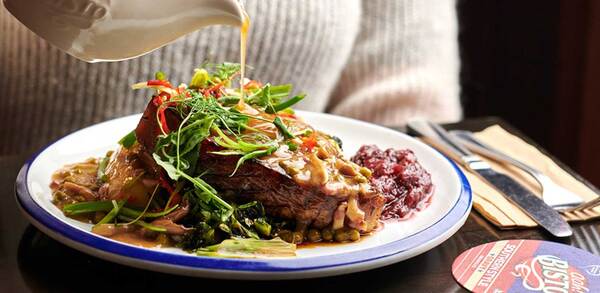Why regenerative farming is breaking new ground for caterers
Caterers are not just sourcing sustainable ingredients, but tracing their provenance back to the source with regenerative farming for as small an imprint on the environment as possible. John Porter reports
Sometimes the best ideas are the oldest ones. Regenerative farming, or food production that doesn’t negatively impact the environment and preserves soil quality and biodiversity, is a way in which we can feed ourselves sustainably.
It’s more or less the way humanity farmed for the 12,000 years or so after homo sapiens exited the hunter-gatherer game and settled down to cultivate cereals for bread and beer, as well as crops such as figs and legumes.
The industrialisation of farming over the last century, however, has seen once-fertile soil replaced by deserts in some parts of the world, and the degradation of soil and loss of pollinating insects through overuse of chemicals in others. There’s been a loss of biodiversity through the focus on a small number of intensively produced crops, and the hugely inefficient use of almost two-thirds of global cereal crops as animal feed.
Theo Kuehn, sustainability manager at food procurement experts Allmanhall, says: “Intensive farming of land for food is damaging the planet. Everyone needs to eat, and stopping farming to allow the land to heal would put more pressure on an already challenged food system and exacerbate the risks around food security.
“Rather than an innovation, regenerative farming is a more back to basics approach. This is exactly as it sounds – a form of farming which regenerates rather than harms the land and associated biodiversity. Regenerative farming works in tandem with nature rather than attempting to dominate it.”
From the ground up
As more suppliers start to talk about produce made using regenerative methods, chefs and caterers, already dealing with a range of descriptions and accreditations, whether that’s organic, locally-sourced, Fairtrade or Red Tractor, could be forgiven for wondering where to start.
For Levy UK & Ireland, the sports and hospitality arm of Compass Group, it starts in Yorkshire. Levy is sponsoring a demonstrator farm called the Biohub at Ings Farm, in partnership with specialist regenerative agriculture consultancy RegenFarmCo.
The site, near Harrogate, opened in November 2022 and acts as a learning hub, educating both farmers and hospitality professionals on the latest developments in sustainable farming, resource management and the diversification of food production systems. Quorn Professional is also collaborating on the project, as is Yorkshire Water, as part of its Beyond Nature initiative, which works with farms to integrate water conservation into agriculture.

In time, the Biohub will enable Levy to source products to serve at its partner venues across the UK, such as the All England Lawn Tennis Club, home to the Wimbledon tournament, and Goodwood. The site is already growing produce including apples, damsons, quinces, berries and leaf vegetables, including native spinach variety Good King Henry. There are plans to expand into livestock, with sheep already on the farm.
The focus is on centuries-old, food production techniques, such as fermentation, dehydration and cold pressing, which can be carried out in sympathy with an overall regenerative farming approach.
Dr Vincent Walsh of RegenFarmCo says: “The transition UK farmers are currently in is huge, particularly upland farmers in Yorkshire where we’re based.”
The long-standing subsidy system that went along with the UK’s EU membership will be replaced in the coming years with financial incentives focused on farming more sustainably.
“Our farm is demonstrating to the 20-plus farmers we work with what regenerative farming is and what it can achieve,” says Walsh.
More than 300 Levy staff will attend workshops at the Biohub in its first year. Every session has a different topic, and “you can see the chefs’ and operators’ minds working”, says Kevin Watson, Levy’s head of sustainability. He adds: “You have to start somewhere, and you have to make the commitment.”
He forecasts that in two to three years, Levy will be buying regeneratively farmed produce from the farmers RegenFarmCo works with.
In the meantime, expectations are being carefully managed. Walsh is looking at ideas such as a fermented elderflower and pear product that could be served as a premium drink at Levy partner venues. “Once we understand how chefs want to use the crops on their menus, we can start to scale up,” he says. “It’s very much an action-led educational programme. It’s about knowing how we get the food into the supply chain and making the programme commercially viable.”
Watson also believes clear government oversight will be needed to prevent spurious claims about products. “It can’t be the chefs’ responsibility to make sure they’ve got produce from regenerative farming. That responsibility has to sit with us in the leadership of this business, but there also has to be guidance and governance otherwise anyone will be able to claim that they’re using regenerative farming. This has to be accessible to everybody in order to succeed, and there have to be boundaries to keep people honest.”
Great grains
Among the suppliers embracing the possibilities is oat milk brand Glebe Farm, which collaborates with its farm suppliers on practices including leaving fields fallow to support wildlife. All its oats are 100% sown, grown and milled within the UK, and a new Tetra Pak plant packages all oat drinks on site.
Tony Holmes, chief operating officer at Glebe Farm, makes the point that more than 80% of oat drinks are imported, something that can surprise consumers who follow a plant-based diet to reduce their carbon footprint.
He says: “Our food mileage from oat milling to packing is 300 metres. Being British-grown and produced means we have the lowest food miles on the market.”
Lanchester Wines has invested more than £13m in renewable energy and heat generation over the past decade and has also created a Sustainable Wine Partner Portfolio to highlight its winemakers’ commitment. These include Italian wine partner Vinicola Tombacco, which has installed solar panels and uses a drip irrigation system that delivers just enough water and nutrients to the vines while minimising wastage.
In Portugal, family-owned Vallegre has put water saving and collection measures in place, while Chile’s Matetic family has incorporated biological corridors within its vineyards, encouraging natural vegetation and allowing animal life to move freely.
Mark Roberts, Lanchester Wines’ director of sales, says: “Provenance used to be all about the winery, but now there’s also focus on the sustainability – what the packaging is made of, what practices were followed when the grapes were grown, how the wine was transported.”
Roberts believes operators will have to overcome reservations about bulk wine, which is shipped in tanks and bottled in the UK, delivering significant CO2 savings as well as maintaining quality. “We need to do a better job of convincing customers that a UK-packed wine really can be as authentic and exciting as anything bottled at source, at a value price point.”

Hop to it
In Surrey, the team behind Hogs Back Brewery, which planted its own hop garden almost 10 years ago, has launched the One Planet Brewing microbrewery, powered by solar panels. One Planet plans to stay local and will distribute to consumers, pubs and retailers within 30 miles of the brewery, using electric drays.
Brewing capacity will be limited by the amount of solar energy that can be generated and stored in the brewery’s three 5.2 kilowatt batteries. It expects to produce more solar energy than it needs during sunny months, so will sell the excess to the grid and buy back what it needs over the winter months.
Hogs Back Brewery managing director Rupert Thompson says: “One Planet Brewing is, we believe, the first UK brewery to brew only with solar power generated on-site, a powerful sustainability message that we believe will resonate with the growing number of drinkers who are keen to minimise their impact on the planet.”

Some operators are embracing regenerative farming for themselves. The Culpeper Family Hospitality Group of four London pubs has expanded from growing its own produce on the roof of its flagship pub, the Culpeper, with the acquisition of land in Deptford in south-east London to expand its in-house growing programme.
The land will be farmed in line with low-intervention practices, and both front of house staff and kitchen teams from the pubs will be encouraged to spend time ‘on the land’.
There are other approaches; for example, Innovation Agritech Group sets up its indoor farms in repurposed buildings such as warehouses and barns, with aeroponic vertical farming systems using 98% less water than traditional farming, and offering year-round availability of fresh, high-quality produce, using no soil or pesticides.
As with the development of lab-grown meat, such innovation has the potential to ease the pressure on agricultural land and allow farms to produce food less intensively, using regenerative methods. Dr Laura Kirwan, sustainability lead at menu consultant Nutritics, says: “Although growing in popularity, regenerative farming is yet to become mainstream in the UK.” She cites restaurant group Rare Restaurants as an early adopter, with some regeneratively farmed steak cuts offered in its M and Gaucho restaurants.
While it may not be practical to offer a full menu of such produce any time soon, Kirwan adds: “this idea of some regeneratively farmed products on menus could be the future and would certainly be welcomed by increasingly sustainability-conscious consumers”.
What is regenerative farming?
The principles of regenerative agriculture include:
- Keeping bare soil to a minimum and reducing tillage
- Diversifying what is grown
- Adding animals into the rotation where useful
- Rewilding
- Stimulating life in the soil
- Avoiding chemicals including artificial fertiliser, pesticides, herbicides, fungicides and the misuse of manure
- Adding trees, perennials and wildflowers
- Maintain a living root in the soil at all times
- Never overgrazing fields
- Reducing soil loss
A recent study stated that farms with regenerative agricultural practices are more profitable than 78% than those practicing only conventional agriculture. Regenerative farmers can give some price of yield to make more profit which regenerative agriculture makes possible by producing high margin crops.
Source: regenerativefoodandfarming.co.uk
Suppliers
Allmanhall
Glebe Farm
[www.glebefarmfoods.co.uk[(www.glebefarmfoods.co.uk/)
Innovation Agritech Group
Lanchester Wines
Levy UK & Ireland
Nutritics
One Planet Brewing
RegenFarmCo
Main image: Halfpoint/Shutterstock




















